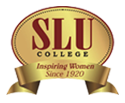History
History of the College
Shree Lalshankar Umiyashankar Arts and Harivadan and Padmaben Thakore Commerce College for Women established in 1920, has the proud privilege of being the first women’s college in Ahmedabad. Established with a view to empower women with higher education, the college is situated in the urban commercial heart of Ahmedabad.
Historical Background
In the backdrop of the troubled times of Indian Freedom Movement and Gandhiji’s leadership ideology of women’s participation in every field, some prominent freedom fighters and social reformers of Gujarat felt an urgent need to start an institute of higher learning exclusively for women. The vision of Mahatma Gandhi that if you educate a woman, you educate the family and the whole society, was carried forward by a group of like-minded social reformers and activists. Way back in 1920, three students from Ahmedabad (Savita Trivedi, Nandagauri Setalvad, Arvinda Thakore) completed schooling by appearing for ‘Shalant Pareeksha’ and the need to continue their studies was urgent. As a result the college came into being the first college for women inAhmedabad and one of the first in Gujarat.
A humble beginning was made with just three students in a rented building, known as Bholanath Ladies Institute and the first classes were conducted in August 1920. Raobahadur Manubhai Nandshankar Mehta, Diwan of Vadodara State, presided over a public function on 30-8-1920 to mark the beginning of this college. The college is proud to have been established with the efforts and dedication of illustrious personalities of Ahmedabad such as Ramanbhai Neelkanth, Vidyaben Neelkanth and Shardaben Mehta (first women graduates of Gujarat) Sumantbhai Mehta, Balwantrai Thakore, Vijayshankar Munshi, Chandulal Kashiram Dave, Indulal Yagnik, Ramnarayan Pathak Dadabhai Mavlankar and many others. The origin of the college stems from the revolt against British education, preservation of Indian cultural identity and emphasis on teaching through the mother tongue. The college that began with the help of honorary services of well known personalities who volunteered as teachers, gradually came to be known all over Gujarat as Mahila Pathshala- an important centre of higher education for women.
In 1921, with the efforts of Shrimati Sharada Sumant Mehta, the college received affiliation to Bharatvarsheeya Mahila Vidyapith of Pune and became famous as Karve College. On receiving financial support from the family of Shri Lalshankar Umiyashankar, a noted educationist of Gujarat, the college was named as Shree Lalshankar Umiyashankar Mahila Pathshala. The trust which runs this college was known as ‘Gujarat Stree Kelavani Mandal’ from 8.5.1922 and Maharani Chimnabai Gaekwad of Baroda was the first President of the this Mandal. (Prior to that it was known as Gujarat Kelavani Mandal- estd in 1917)
With a steady increase in the number of students, the need for a new larger building was acutely felt. The organizing committee of Gujarat Stree Kelavani Mandal stepped up their efforts for this. The foundation of the new building was laid by late Prime Minister Morarji Desai in 1960. The inauguration function was presided over by Dr. Lady Premlila Thakersey. The college shifted into its present premises in 1963.
The Academic Growth
The college which has always provided the foundation for education and upliftment of women, has grown manifold in its goal to meet the educational, cultural, social, psychological needs of women. It has taken strides in providing women the knowledge and skills necessary in the present times.
Post Independence, in 1948, the B.Ed. college was added. This was later separated as SMNK Dalal Education College(1975) under the same trust.
In 1973, the college changed affiliation from SNDT University to Gujarat University.
Thereafter, Home Science and later on Commerce departments were added. In 1981, the Commerce department was given the name of social worker and alumni of the college, Padmaben Harivadan Thakore, hence the college came to be known as Shree Lalshankar Umiyashankar Arts and Harivadan Padmaben Thakore Commerce College for Women.
The college added UGC Vocational courses in 1995 and UGC Career Oriented Courses in 2006.
Computerized administrative procedures were introduced in 1995. The new library of the college was built in 1996 and named Minal Kothari Library. The library was computerized with SOUL software in 2006.
English medium was introduced in the Commerce faculty in 2007.
In 2014, PG in commerce was started. M.Com for girls in Gujarati and English was added.
The Additional Programmes
The degree courses taught at the college are supplemented by the following programmes offering skill enhancement and competence requisite in the global scenario:
- ICT Centre- offering computer and IT courses.
- Fashion Design(Diploma and Advanced Diploma)
- Skill Oriented Certificate courses( Jewellery Design, Handicraft making etc.)
- UGC Add-on Career Oriented Courses; Human Resource and Personnnel Management, Hospital Nutrition and Dietetics.
- Remedial Courses
- English Improvement and Proficiency.
- Career Guidance and Placement
The college is closely linked with the social wing of the management Gujarat Stree Kelavani Mandal and joins in the social and community work done by the centre, under the following:
- Family Counseling Centre
- Multi-purpose Women’s Welfare Centre
- Relief Activities in Natural and Manmade Calamities.
History of the Management- ‘Gujarat Stree Kelavani Mandal’
The trust was established by a group of enlightened leaders in 1917, with the basic motto of encouraging women to take higher education where they can study and grow without fear. As mentioned earlier the pioneering efforts of many social activists and academicians have contributed to the growth of the present academic institution. To name a few- Maharani Chimnabai Gaekwad, Lady Vidyagauri Nilkanth, Smt. Shardaben Mehta, Lady Tanumatiben Chinubhai, Smt. Udayprabhaben Mehta- have been past presidents of the Mandal. The present President is Vasuben Bhatt who is a pre-eminent and respected social worker, well awarded and recognized for her outstanding leadership of women in society.
The present Trust consists of prominent women social workers, academicians, writers, artists and activists. The trust guides and takes active interest in all the academic as well as socially oriented activities of the institution.


